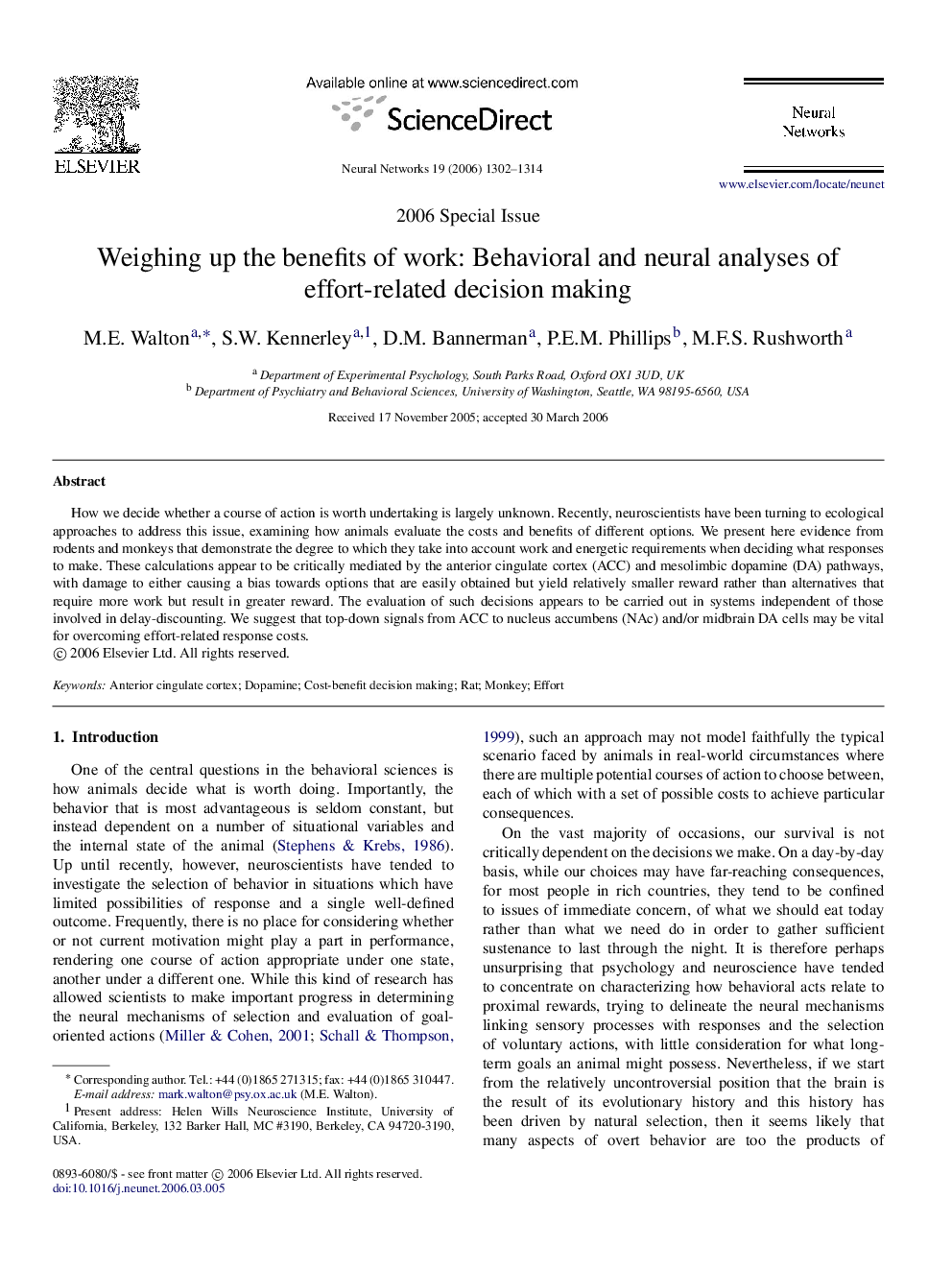| Article ID | Journal | Published Year | Pages | File Type |
|---|---|---|---|---|
| 407984 | Neural Networks | 2006 | 13 Pages |
How we decide whether a course of action is worth undertaking is largely unknown. Recently, neuroscientists have been turning to ecological approaches to address this issue, examining how animals evaluate the costs and benefits of different options. We present here evidence from rodents and monkeys that demonstrate the degree to which they take into account work and energetic requirements when deciding what responses to make. These calculations appear to be critically mediated by the anterior cingulate cortex (ACC) and mesolimbic dopamine (DA) pathways, with damage to either causing a bias towards options that are easily obtained but yield relatively smaller reward rather than alternatives that require more work but result in greater reward. The evaluation of such decisions appears to be carried out in systems independent of those involved in delay-discounting. We suggest that top-down signals from ACC to nucleus accumbens (NAc) and/or midbrain DA cells may be vital for overcoming effort-related response costs.
